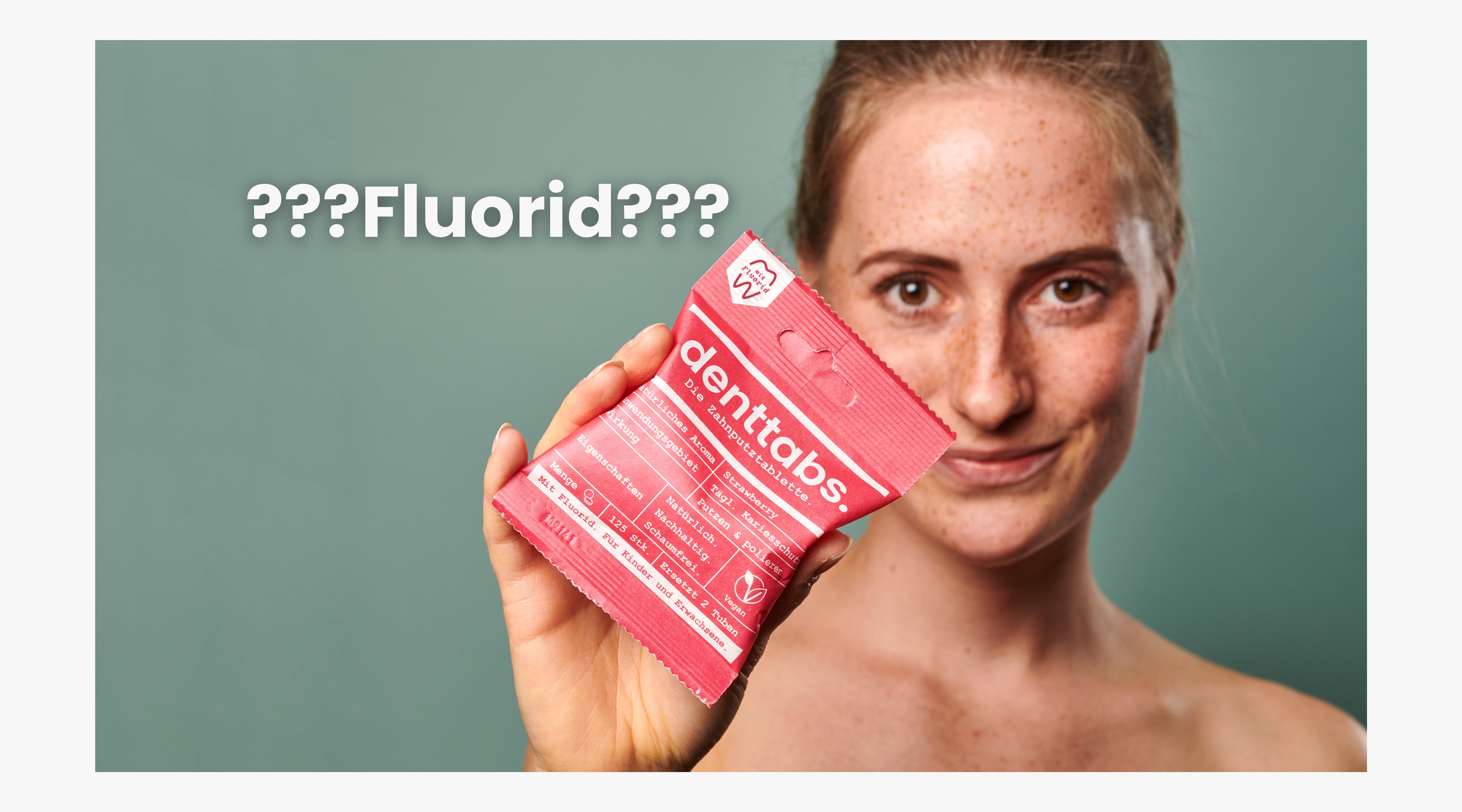We often hear: “Denttabs contain too little fluoride to effectively protect against tooth decay!”
A closer look at the experiences, the legal regulations, and a few additional considerations is worthwhile, especially when compared to conventional toothpaste from a tube.
Regulations at a glance
In the EU, and therefore also in Germany, toothpaste is limited to a maximum of 1,500 ppm fluoride (0.15%) – based on the assumption that you use about 1 g of toothpaste when brushing your teeth.
Denttabs weigh only around 1/3g – previously they were dosed at 4500ppm with a special permit.
Since the EU has sole responsibility for the issue, Denttabs regularly contain 1,500 ppm, while the children's version (Strawberry) contains 500 ppm.
Effect – concentration is not everything
Customer reports revealed surprising things:
-
4500ppm - visibly less sensitivity in 3-5 days
-
1500ppm - visibly less sensitivity in 3-5 days
-
500ppm - visibly less sensitivity in 3-5 days
So, no matter how high the concentration of fluoride is, the effect remains exactly the same!
Why does fluoride in Denttabs work so well?
Fluoride only protects tooth enamel when it comes into direct contact with the enamel. Denttabs does just that:
The tablet is chewed in the mouth, forming a creamy mass. This is then spread directly onto the tooth surfaces with a toothbrush.
Denttabs concentrates where it is needed - on the tooth enamel, instead of being uselessly distributed throughout the oral cavity through the foaming effect typical of toothpaste.
We repeatedly receive reports from users that they notice noticeable improvements in sensitive tooth necks and other conditions after just a short period of time. We've even seen reports of complete healing in cases of so-called 'precaries' and caries visible on X-rays!
Questionable: Fluoride in drinking water
While fluoride is considered beneficial in dental care, its intake through drinking water is rather controversial. In some countries, such as the USA, tap water is fluoridated so that the mineral enters the body's circulation directly.
There are studies describing possible negative consequences, for example, on the intellectual development of children and adolescents. That's why there are many campaigns against "forced medication."
What do we learn from this?
Experience has shown that the amount of fluoride says little about its effectiveness. Regardless of whether the fluoride dosage is higher or lower, the effect is the same thanks to the tablet form!
Denttabs are within the legally permitted limits and provide protection against caries.
Your Denttabs team





Split:
What customers say about Denttabs – and why this motivates us
The surprising tulip test